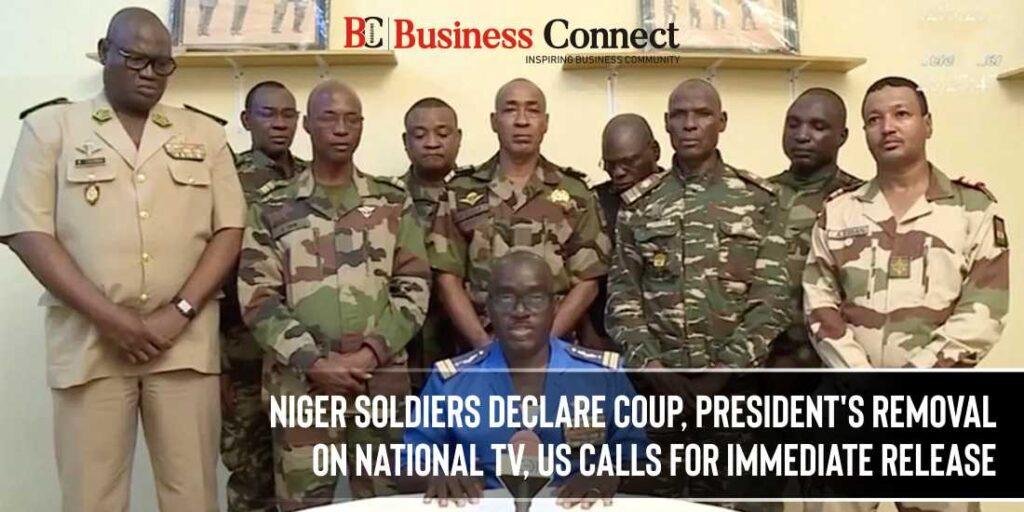Niger Soldiers Declare Coup, President’s Removal on National TV, US Calls for Immediate Release
Written by Sanjay Kumar
Niger
Country in West Africa
- Capital: Niamey
- Population: 2.53 crores (2021) World Bank
- Official language: French
- Prime minister: Ouhoumoudou Mahamadou
- Currency: West African CFA franc
- Gross domestic product: 1,491.5 crores USD (2021) World Bank
- GDP (nominal): 2018 estimate
In a shocking turn of events, a group of soldiers in Niger announced the removal of President Mohamed Bazoum from power on national television. This development occurred late on Wednesday (July 26), just hours after the president was held captive in the presidential palace. Colonel Amadou Abdramane, speaking on behalf of the defence and security forces, cited the deteriorating security situation and bad governance as the reasons behind their decision to end the current regime.
The international community swiftly responded to the coup. The United States expressed its unwavering support for President Bazoum and demanded his immediate release. The US emphasized that their economic and security partnership with Niger depended on the continuation of democratic governance and the respect for human rights and the rule of law. Similarly, the Economic Community of West African States (ECOWAS) called for the immediate and unconditional release of President Bazoum, warning that those involved in his captivity would be held responsible for his safety.
The European Union, along with France and Algeria, also condemned the coup attempt, expressing their solidarity with ECOWAS and denouncing any actions that threatened Niger’s stability and democracy. Even the World Bank added its voice to the chorus of condemnation, strongly disapproving of any attempt to seize power through force and destabilize the country.
Niger’s situation is further complicated by its high levels of poverty and ongoing jihadist campaigns. The country ranks low on the UN’s Human Development Index, and its surging population, driven by a high birthrate, poses additional challenges. The presence of two jihadist campaigns in different regions of Niger has led to hundreds of thousands of people being displaced, creating a severe humanitarian crisis and placing immense strain on the economy.
To address these security challenges, Niger’s military has been receiving training and logistical support from the United States and France, both of which have bases in the country. Last year, Niger became the center of France’s anti-jihadist operations in the Sahel region, but the mission faced reconfiguration after French forces withdrew from Mali and Burkina Faso due to disagreements with the ruling juntas in those countries.
The international community’s unanimous rejection of the coup attempt reflects the concern for Niger’s stability and democratic governance. The situation remains highly fluid, and it is crucial for all parties involved to prioritize a peaceful resolution and uphold the principles of democracy and human rights.
As the world watches the events unfolding in Niger, the hope remains that the country can overcome its challenges and find a path toward lasting peace and prosperity for its people.



